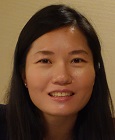 Dr. Hye Seong Mun
Dr. Hye Seong Mun
Dr. H.S. Mun is a permanent Fellow of the Law and Development Institute. She received a Ph.D. in medical science from Chiba University, Japan. Dr. Mun was a full-time tenured faculty member at Chiba University School of Medicine until 2007. She has published over thirty articles in leading peer-reviewed journals from 1997 to 2007 and subsequently co-authored articles on law, public health, and development. Since Dr. Mun joined the LDI in 2010, she has assisted with numerous publications by LDI scholars and contributed to other LDI activities.
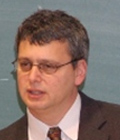 Professor Colin Picker
Professor Colin Picker
Professor Picker is an Associate Professor at the Law Faculty of the University of New South Wales. His fields of research include International Law, International Economic Law and Comparative Law. His work of recent years has involved efforts to bring these three fields together in an ongoing comparative law examination of international law. In addition to publishing numerous articles and book chapters covering those three fields, he is a co-author of one of the leading comparative law textbooks in the United States, as well as co-editor of many collections on international economic law. Professor Picker was one of the two co-founders of the Society of International Economic Law, and is today an Executive Vice President of that society. He is also on the Executive Board of the American Society of Comparative Law. Before taking his position at UNSW, he was the Daniel L. Brenner/UMKC Scholar and Professor of Law at the University of Missouri Kansas City School of Law in the United States. Professor Picker is a graduate of the Yale Law School, and following a judicial clerkship on the U.S. Second Circuit Court of Appeals was an associate attorney in the International Group of Wilmer, Cutler & Pickering in Washington, D.C.
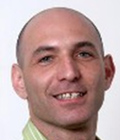 Dr. Tomer Broude
Dr. Tomer Broude
Dr. Tomer Broude is Senior Lecturer at the Hebrew University of Jerusalem in the Faculty of Law and Department of International Relations and the Academic Director of the Minerva Center for Human Rights in Jerusalem. He has taught international law at various law schools in Israel, at the University of Toronto, Georgetown University Law Center, Johns Hopkins University’s School of Advanced International Studies, University of British Columbia, Gujarat National Law University, Hong Kong University and the Università Commerciale Luigi Bocconi in Milan. His fields of research are in international public law, with a focus on international economic law and the World Trade Organization (WTO), and their interaction with other fields of law. His publications include International Governance in the WTO: Judicial Boundaries and Political Capitulation (2004); The Shifting Allocation of Authority in International Law: Considering Sovereignty, Supremacy and Subsidiary (2008, ed. With Yuval Shany); The Politics of International Economic Law (ed. with Marc L. Busch and Amy Porges) and articles and essays that have appeared in the Vanderbilt Law Review, Journal of World Trade, World Trade Review, Journal of International Economic Law, Journal of World Intellectual Property, Georgetown Immigration Law Journal and Columbia Journal of Transnational Law, among others. In 2007-09, he served as Co-Chair of the International Economic Law Interest Group of the American Society of International Law; he is one of the founders of the Society of International Economic Law and a member of its Executive Council, and a Member of the International Law Association Committee on the International Law of Sustainable Development.
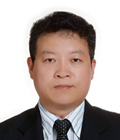 Professor Wang Jiangyu
Professor Wang Jiangyu
Professor Wang Jiangyu is an Associate Professor at the Faculty of Law of the National University of Singapore. His teaching and research interests include international economic law, corporate and securities law, law and development, Chinese legal system, and human rights in China. He practiced law in the Legal Department of Bank of China as well as Chinese and American law firms. He served as a member of the Chinese delegation at the annual conference of the United Nations Commission on International Trade Law Conference in 1999. He is a member of the Chinese Bar Association and the New York Bar Association. He is also a director on the Executive Board of the WTO Institute of the China Law Society, a Senior Fellow at the Law and Development Institute (LDI), and a fellow of the Asian Institute of International Financial Law (Hong Kong). He has also been invited expert/speaker for the WTO, International Trade Centre (UNCTAD/WTO) and United Nations Economic and Social Commission for Asia and the Pacific (UNESCAP). He recently received the 2007 Young Research Award of The Chinese University of Hong Kong in recognition of his accomplishment in research from 2006-2007. Professor Wang has published extensively in Chinese and international journals and newspapers on a variety of law and politics related topics.
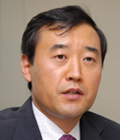 Professor Won-Mog Choi
Professor Won-Mog Choi
Professor Won-Mog Choi is a professor of international trade law and director of the WTO Law Center, Ewha Womans University School of Law at Seoul. He is also a member of Editorial Board of many journals including the Journal of International Economic Law (Oxford), the Law and Development Review and Indian Journal of International Economic Law, and a member of New York Bar. Professor Choi received his legal education in the United States (Georgetown Law, S.J.D. and LL.M.) and Korea (Seoul National University, M.P.A. and LL.B). Prior to joining faculty of Ewha, he worked for the Ministry of Foreign Affairs and Trade of Korea for 11 years as a diplomat and legal officer in charge of numerous trade issues, including WTO dispute settlements, trade remedy issues, and FTAs. Currently advising the Korean Government on trade law and policy issues and working as columnist of major newspapers in Seoul, Professor Choi has actively published books and articles.
 Dr. Andrew D Mitchell
Dr. Andrew D Mitchell
Dr. Andrew Mitchell joined the faculty at Melbourne Law School in 2006, having been a Senior Fellow since 2002. In 2007, following a nomination by the Australian government, the WTO’s Dispute Settlement Body added him to the Indicative List of Governmental and Non-Governmental Panelists to hear WTO disputes. From 2003–2005, Andrew was a Consultant to the International Monetary Fund in Geneva, focusing on WTO issues. He has previously worked with the Organisation for Economic Co-operation and Development (OECD), Davis Polk & Wardwell, and Allens Arthur Robinson. Andrew also consults for the private sector and governmental and non-governmental organisations including the International Development Law Organization, the Canadian International Development Agency, and the World Health Organization. He has held visiting positions at the Lauterpacht Research Centre for International Law, the British Institute of International and Comparative Law, the London School of Economics, the International Arbitration Group of WilmerHale, and the Institute of International Economic Law.
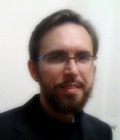 Dr. Salim Farrar
Dr. Salim Farrar
Dr Salim Farrar is Senior Lecturer, and Associate Director of CAPLUS at Sydney Law School. His teaching and research interests are in Islamic Law, Malaysian Law, Law and Development, and Criminal Justice. Before moving to the Sydney Law School in 2009, he was Associate Professor at the International Islamic University, Malaysia, where he had taught since 2004. While the majority of his publications and research to date has explored the interplay between Islamic law, state laws and human rights, his current interest lies in legal approaches in economic development and the role of Islamic banking and finance in Asia.
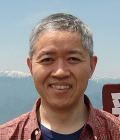 Professor Junji Nakagawa
Professor Junji Nakagawa
Junji Nakagawa is Professor of International Economic Law at the Institute of Social Science (ISS), University of Tokyo. Born in Hiroshima in 1955, he got his B.A., M.A., and Ph.D., all in law from the University of Tokyo. Before joining the ISS in 1995, he was Associate Professor of Law at Tokyo Institute of Technology. He has also taught at University of Denver, El Colegio de México, University of Georgia, City University of Hong Kong, Tufts University and Shantou University. He wrote and edited 28 books and more than 100 articles and book chapters in the field of international economic law and international. His recent publication includes International Harmonization of Economic Regulation (Yuhikaku, 2008 in Japanese; substantively revised English translation will be published from Oxford University Press in 2011), Anti-Dumping Laws and Practices of the New Users (Cameron May, 2007), Managing Development: Globalization, Economic Restructuring and Social Policy (Routledge, 2006), China’s Anti-Dumping (JETRO, 2004, in Japanese) andInternational Economic Law (Yuhikaku, 2003, in Japanese; Chinese translation from Peking University Press, 2007).
 Professor Maureen Irish
Professor Maureen Irish
Professor Irish teaches International Economic Law, International Business Transactions, Canada-United States Legal Issues and Private International Law (Conflicts) at University of Windsor. She has B.A. and LL.B. degrees from the University of Toronto, and LL.M. and D.C.L. degrees from McGill University. She is the author of Customs Valuation in Canada (1985), as well as editor or co-editor of The Auto Pact: Investment, Labour and the WTO (2004), International Trade & Intellectual Property: The Search for a Balanced System (1994) and The Legal Framework for Canada-United States Trade (1987). Professor Irish teaches international economic law, international business transactions, Canada-United States legal issues and private international law (conflicts). She has served on dispute settlement panels under the Canada-United States Free Trade Agreement and the North American Free Trade Agreement.
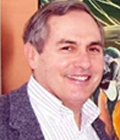 Professor David Gantz
Professor David Gantz
Professor David A. Gantz is Samuel M. Fegtly Professor of Law and Director of the International Trade and Business Law Program at the University of Arizona, James E. Rogers College of Law in Tucson, Arizona, and serves as Associate Director of the National Law Center for Inter-American Free Trade. He is a graduate of Harvard College and Stanford Law School. Professor Gantz served with the U.S. Agency for International Development law reform project in Costa Rica and as a law clerk with the U.S. Court of Appeals for the 9th Circuit. At the Office of the Legal Adviser, U.S. Department of State, from 1970-1977, he was the chief lawyer responsible for Inter-American affairs. From 1977-1993, he practiced international trade and corporate law in Washington, D.C. He joined the law faculty at Arizona in 1993. He has served as a binational panelist under the dispute resolution provisions of the CFTA and NAFTA and has written extensively on NAFTA, NAFTA and WTO dispute resolution, regional trade agreements, foreign bribery and other international trade, investment and environmental law issues. He is the author of Regional Trade Agreements: Law, Policy and Practice (Carolina, 2009) and the co-author of Trade Remedies in North America (Kluwer, 2010).
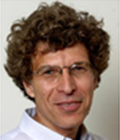 Professor Moshe Hirsch
Professor Moshe Hirsch
Professor Moshe Hirsch is an associate professor at the Hebrew University of Jerusalem (Law Faculty and Department of International Relations) and Director of the International Law Forum, Hebrew University. In the past he served as the Vice Dean of the Law Faculty. Prof. Hirsch specializes in public international law, international economic law (trade, investment and economic development), and international legal theory. A significant part of his publications involves interdisciplinary research that employs, inter alia, sociological theories, game theory, political economy and political science. His recent publications include “The Sociology of International Economic Law:”, European Journal of International Law (2008) and “Compliance with International Norms In the Age of Globalization: Two Theoretical Perspectives”, in The Impact of International Law on International Cooperation (Eyal Benvenisti and Moshe Hirsch, eds., Cambridge University Press, 2004).
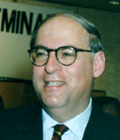
Professor Gary Horlick
Professor Gary Horlick is ranked at the very top among the world’s international trade lawyers by Chambers, Euromoney/Insititutional Investor, and Who’s Who Legal. He has represented leading US and global companies, and more than 20 countries in international trade negotiations and disputes, and has chaired WTO and Mercosur dispute panels. He served as International Trade Counsel of the U.S. Senate Finance Committee; head of Import Administration of the U.S. Department of Commerce [where he was responsible for all U.S. antidumping and countervailing duty cases, Foreign Trade Zones, and Statutory Import Programs]; and teaches at Yale Law School, Georgetown Law Center, and the University of Berne’s World Trade Institute. He graduated from Dartmouth College, Cambridge University, and Yale Law School.
 Professor Yong-Shik Lee
Professor Yong-Shik Lee
Professor Y.S. Lee is Director and Professorial Fellow of the Law and Development Institute. He graduated in economics with academic distinction from the University of California at Berkeley and studied law at the University of Cambridge. Author of Reclaiming Development in the World Trading System (Cambridge University Press, 2006, 2009, 2016), Safeguard Measures in World Trade: The Legal Analysis (Edward Elgar, 2003, 2005, 2014), and Microtrade: A New System of International Trade with Volunteerism Towards Poverty Elimination (Routledge, 2013, 2015), and Law and Development: Theory and Practice (Routledge 2019), Professor Lee has over one hundred scholarly publications in the areas of international trade law and economic development, comparative law, and international commercial arbitration. His recent work has been focused on the impact that domestic and international legal systems, including the legal framework for international trade, has on economic development. He has also developed the concept of microtrade, a new system of international trade designed to alleviate populations of the least-developed countries of extreme poverty. He is currently an associate editor of the Journal of World Trade and the founding editor-in-chief of the Law and Development Review.
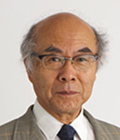
Professor Mitsuo Matsushita
Mitsuo Matsushita is a professor emeritus of Tokyo University and a counsel to Nagashima, Ohno & Tsunematsu, a leading international law firm in Tokyo. Having earned a Ph.D. degree from Tulane University in 1962 and a D.Jur. degree from Tokyo University in 1968, he went on to be internationally acknowledged as a Japanese expert in the field of competition law and international economic law. In his academic career, he has held professorships in Japan at Sophia University, Tokyo University and Seikei University. He has been a visiting professor at Harvard Law School, Michigan Law School, Columbia Law School, Monash University in Australia and at the College of Europe in Bruges, Belgium. He has written many books and articles on various aspects of international trade and competition and investment law. Mitsuo Matsushita is admitted to Tokyo Bar (Daiichi Tokyo Bengoshi Kai). In his public career, he served as one of the founding members of the Appellate Body of the World Trade Organization from 1995 to 2000. He has worked for the Ministry of Finance, the Ministry of Economics, Trade and Industry and the Ministry of Telecommunications and Posts of the Japanese government as a member of various councils dealing with telecommunications, customs and tariffs, export and import transactions, and industrial property. Currently he is a member of the Industrial Structure Council attached to the Ministry of Economics, Trade and Industry. He is also a member of the advisory board of the Academy of the World Intellectual Property Organization.